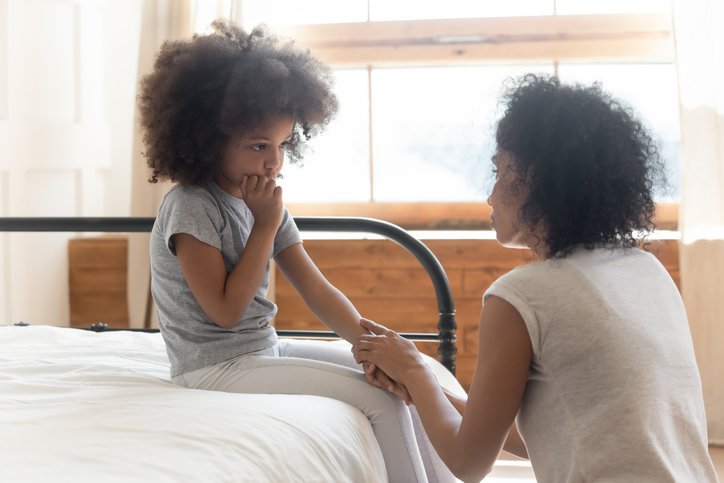How to Help Your Child Understand Grief and Loss
Talking about death is a difficult conversation to have with your child, but it's one of the most important.
For adults and children alike, grieving is a critical part of accepting loss and saying goodbye. It is often a challenging time filled with sadness, emotional turmoil, and change. Your loving guidance through this process can offer your child growth and transformation. In the following article, we have compiled eight proven strategies to help your child cope with loss and begin the journey toward healing.

Consider your child's age and personality.
This will help you determine how much information he or she can accept and process. Very young children typically do not realize that death is permanent, and they may think that a loved one who passed away will return at some point. They may have a general understanding that death makes us sad and causes separation, but the concept of forever is beyond their comprehension. Older children grasp the permanence but they may still have many questions. Do your best to respond honestly, but realize that you may not be able to answer every query. And that is perfectly okay. Being available to your child is what matters.
Be a good listener.
Death can make children fearful about the future. Allow them to talk about their fears and validate their feelings. Keep in mind that children's concerns are often different than you might expect. They might worry if the person who passed away will get hungry or wonder how long it takes to get to Heaven. Whatever they come up with, be a compassionate listener.
Recognize that all kids grieve differently.
After losing a loved one, your child may go from crying one minute to happily playing the next. He might throw a tantrum or be sulky. Very young children sometimes regress and start wetting the bed again or revert to baby talk. Those changeable moods and unusual behaviors don’t mean they aren’t sad or that they have finished grieving. Children simply cope with loss differently than adults do. And like adults, each child will have his or her own way of dealing with it. Remember that there is no ‘right’ or ‘wrong’ way to grieve.
Be a good role model for the expression of emotions.
Children will express their feelings if they see you demonstrating yours. You don't need to hide your sadness; that's not Find appropriate and constructive ways to talk about your emotions. For example, you might say, “I feel sad today because I'm thinking about Grandpa and I miss him very much.
Maintain a routine.
Having regular activities to attend helps us all feel more grounded when times are challenging. Your child will be concerned with how his or her life will change, so it's important to reassure him or her that things will largely go on as usual. Having set bedtimes, enjoying meals as a family, and sharing plenty of affection offer much-needed stability when grief has created chaos.
Let them know what to expect at the funeral.
If your children are old enough to love, they are old enough to grieve. They should be allowed to attend the wake, memorial service, or funeral if they wish, but should not be forced to do so. Lovingly guide them through the process by explaining the funeral rituals in advance and preparing them for what they will see at the funeral home. If you decide that attending the funeral is not appropriate for your child, you can offer other ways to say goodbye. Planting a tree or releasing balloons can be good alternatives for providing closure.
Find opportunities to talk about loss.
According to experts from the National Institutes of Health, having conversations about death in general—such as trees, insects, or birds—offers a way of teaching without the tragedy and emotion of personal loss. It provides an opportunity to explain that death is a natural occurrence and that it is a way of making room for new living things.
Some children need outside help to deal with their grief.
Seek aid from a school counselor, clergyperson, or grief counselor if you feel your child needs extra help to cope with the loss. If you see any possible signs of depression or suicidal behavior, seek help immediately from a mental health professional or your health care provider.
You can't protect children from the pain of loss, but you can help them build healthy coping skills. If you have questions or need additional help for your grieving child, our caring professionals are here for you. Please reach out to us anytime.
About Vaughn Greene Funeral Services: For more than 20 years, Vaughn Greene Funeral Services has been providing a ministry of care to Baltimore’s African American community. As a leading local, minority- and family-owned provider, we promise to provide our highest level of service and respect to families who entrust us to honor their loved ones. For more information, please call us at 410.655.0015 or visit us online at https://vaughncgreene.com/.







Comments